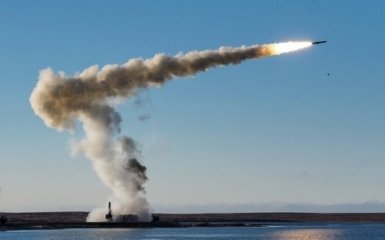British intelligence has analysed Russia's resumption of airstrikes against Ukraine using long-range aircraft.
The Russian Federation will continue to strike critical objects in Ukraine
The summary reports on March 21 that Russia delivered the first major strike in more than a month using long-range aircraft against Ukraine.
The strike group included at least 10 Tu-95 aircraft operating from Olenegorsk and Engels air bases, as well as MiG-31 fighters. At least 20 missiles (including Kh-101 and Kinzhal) were launched, mainly on Kyiv.
Forty-four days have passed since the previous air strike on Kyiv.
According to British intelligence, the month-long pause in strikes using long-range aircraft may have been caused by problems with the management and planning of the air fleet.
The sanctions will likely have limited Russia's access to key aircraft and missile components. Continued Ukrainian air defence successes will likely also complicate the planning of a Russian attack.
Russia will almost certainly continue strikes against critical locations as aircraft, crews and weapon stocks allow, attempting to maintain pressure on the Ukrainian government and population via its stand off strike capability, the British MOD notes.
Russia launched two massive attacks on Ukraine
Russian troops launched a massive air strike on March 21, sending more than 30 missiles at Kyiv, but Ukraine's air defence systems shot down all enemy targets.
The next day, on March 22, the Russian army launched a massive attack on the Ukraine's energy infrastructure. The Russians launched over 150 drones and missiles. Air defence forces shot down 55 Shaheds kamikaze drones and 37 missiles.
The head of Ukrenergo, Volodymyr Kudrytskyi, said the attack on Ukraine's energy industry was the biggest since the beginning of the full-scale war.
According to him, it is characterised by the fact that combined means of attack were used, that is, not only cruise missiles, but also "Shahed" and ballistic missiles. As a result of the large-scale attack, energy facilities in various regions of Ukraine were damaged.
In addition, the Dnipro HPP in Zaporizhzhia was attacked by the Russians on March 22, and a fire broke out there. Due to the city's shelling, the road crossing of the Dnipro HPP dam is entirely restricted.
Because of this, a blackout at the Zaporizhzhia NPP is threatened. The power line to the ZNPP has been de-energised.




